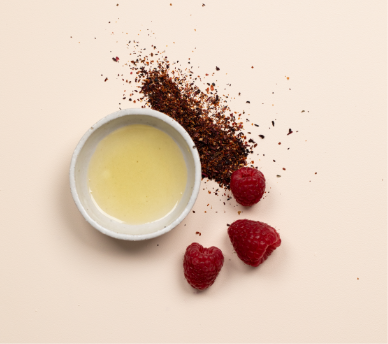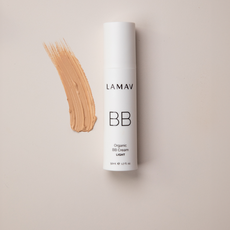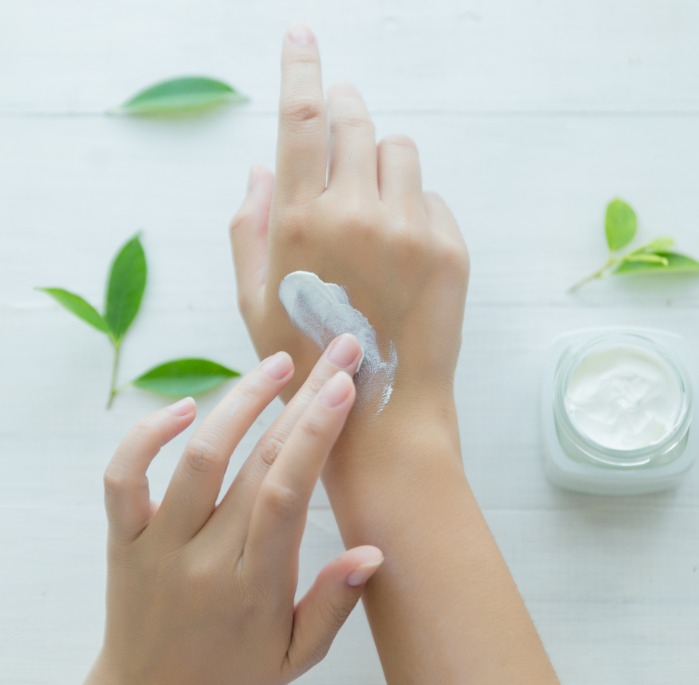Your skin absorbs up to 60% of what you apply on it so what’s inside your body lotion or moisturizer really matters. Many skincare products contain ingredients that may seem harmless but are linked to hormone disruption, allergies, or even long-term health issues. In this guide, we uncover some of the most common toxic ingredients to avoid in skincare products, helping you make safer, more informed choices for your daily routine.
Explore toxin-free skincare solutions at LaMav
Toxic Ingredients to Avoid in Your Body Lotion
When choosing skincare products, it's easy to focus on texture, scent, or packaging. But beneath the surface, many conventional body lotions contain harmful substances that may do more harm than good. To protect your skin and overall health, it’s essential to understand the toxic ingredients to avoid in skincare products especially those hidden in body lotions.
1. Parabens
Parabens (such as methylparaben, ethylparaben, propylparaben, and butylparaben) are widely used preservatives in cosmetics to extend shelf life. However, they can disrupt hormone function by mimicking estrogen, potentially increasing the risk of breast cancer.
Why avoid them?
- Linked to hormone disruption
- Found in many conventional lotions, creams, and even shampoos
2. Phthalates
Phthalates help lotions penetrate the skin and cling to fragrances. However, they are also endocrine disruptors and have been associated with reproductive and developmental issues.
Common names: DBP, DEHP, DEP
Avoid in: Fragranced body lotions and skincare products
3. Formaldehyde-Releasing Preservatives
Certain preservatives like DMDM hydantoin, quaternium-15, and imidazolidinyl urea release formaldehyde over time. Formaldehyde is a known carcinogen that can also cause skin irritation and allergies.
Why it matters
- Long-term exposure can lead to serious health issues
- Often not directly labeled as "formaldehyde"
4. Synthetic Fragrances
Synthetic fragrances often contain a mix of undisclosed chemicals, including phthalates. These can cause allergic reactions, skin sensitivities, and respiratory problems.
Look for: “Fragrance” or “Parfum” on the ingredient label
5. Mineral Oil
A petroleum-derived ingredient, mineral oil is used to lock in moisture but may clog pores and interfere with the skin’s natural detox process. It can also be contaminated with carcinogenic substances if not properly refined.
Other Toxic Ingredients to Avoid in Skin Care Products
Beyond the five listed above, keep an eye out for:
- Sulfates (SLS/SLES): Harsh detergents that strip natural oils
- Triclosan: Linked to hormonal imbalances and antibiotic resistance
- PEG Compounds: Can be contaminated with harmful impurities like 1,4-dioxane
- BHA and BHT: Synthetic antioxidants that may be endocrine disruptors
Commercial Alternatives: Shop Smarter
Looking to switch to safer, skin-friendly options? Look for products labeled:
- Non-toxic lotion
- Clean skincare products
- Best natural body lotion
- EWG Verified or certified organic
- Safe body lotion for sensitive skin
LaMav offers a full line of organic body lotions free from these toxic ingredients to avoid in body lotion backed by science and rooted in nature.
How to Check for Toxic Ingredients;
Be proactive about your skincare choices:
- Always read ingredient labels
- Use a toxic ingredients checker like the EWG’s Skin Deep Database
- Choose products with full ingredient transparency
- Avoid vague terms like “fragrance” or “perfume”
Why It Matters
Your skin is your largest organ and what you put on it matters. Toxic ingredients to avoid in your body lotion may lead to long-term health consequences, including hormone disruption, allergies, and even cancer risks. With clean alternatives readily available, there’s no reason to compromise your health for hydration.











